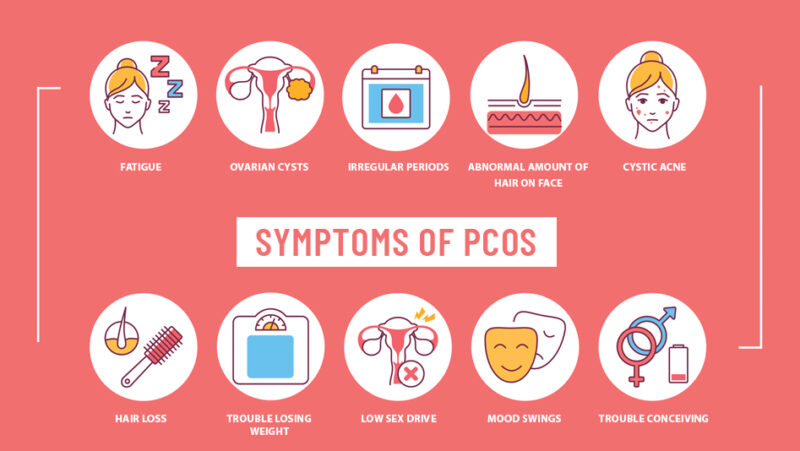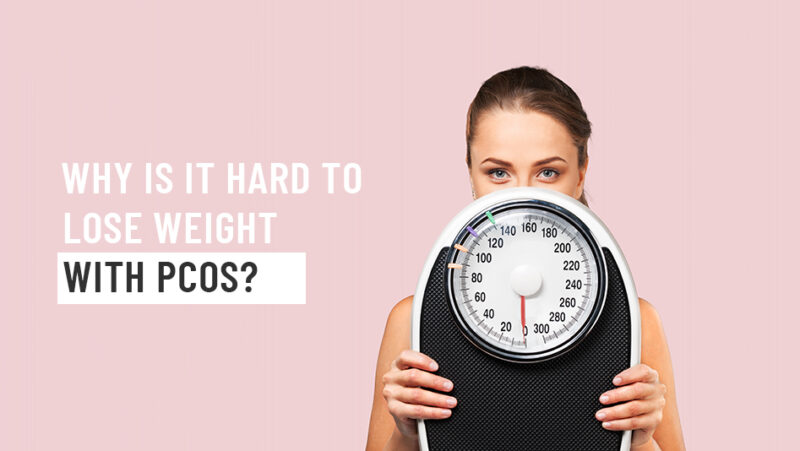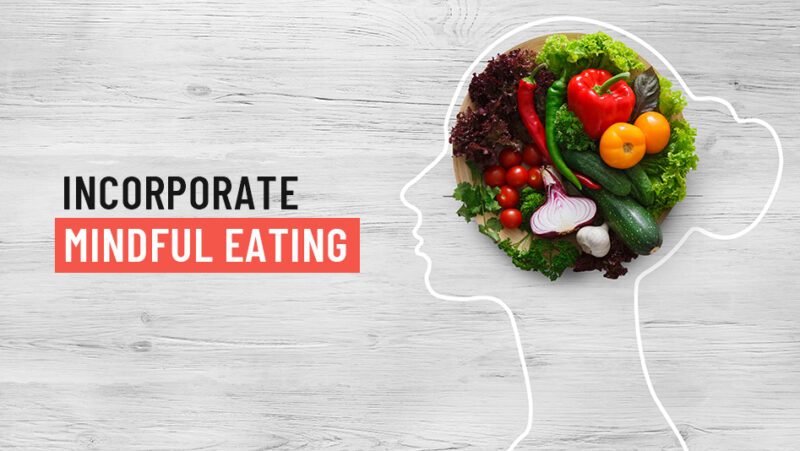If you are a woman struggling with PCOS, you know how hard it is to shed those extra pounds.
Because of the hormonal balances caused by this condition clubbed with insulin resistance, your body goes into a fat-storage mode.
What makes it worse is that all this is part of a vicious cycle, which in turn increases hunger and cravings.
However, there are different strategies and lifestyle alterations through which you can lose weight with PCOS.
Bear in mind that these changes need to be sustainable in the long run.
In this blog, we will look at different methods and tricks to lose weight with PCOS.
What is PCOS?
Polycystic ovarian syndrome, commonly known as PCOS, is a hormonal disorder that affects 1 in 10 women between the ages of 15 to 44 years.
This condition occurs if the ovaries produce male sex hormones (androgen) in abnormal amounts.
As a result, small fluid-filled sacs called cysts are formed in the ovaries, hence the name, polycystic ovarian syndrome.
However, some women may not develop these cysts and still suffer from this condition.
How is it caused?
The exact cause of PCOS is uncertain, however, it may be an outcome of insulin resistance in women. This means that the body can’t utilize insulin properly.
This leads to a build-up of insulin levels in the body that causes an increase in androgen levels. Also, this condition can also be passed on from mother to child.
Obesity may be another cause of PCOS as it leads to insulin resistance.
What are the symptoms of PCOS?

With PCOS, two out of three of the most common symptoms are an irregular menstrual cycle, hyperandrogenism, and ovulatory dysfunction.
Other common signs of this condition are:
- Hair loss or thinning of hair
- Hirsutism, a condition where women develop an abnormal amount of hair on the face
- Cystic acne on the face, chest, and upper back
- Difficulty in conceiving, infertility
- Skin tags (excess skin) on armpits and neck
- Dark patches around the neck, underneath the breasts, and groin area
- Weight gain, especially around the belly
Why is it hard to lose weight with PCOS?

As mentioned above, PCOS can be caused by insulin resistance, a condition in which the body cannot process carbohydrates normally.
This can cause problems with weight regulation, leading to excess fat storage.
Furthermore, women suffering from PCOS are at an increased risk of hypertension, cholesterol issues, and the development of a fatty liver.
If excessive weight gain is not controlled, these women may also experience heart diseases, diabetes, or stroke.
Women struggling with PCOS may find it difficult to shed those extra pounds.
This is because they experience hunger hormone imbalances, which cause fluctuations in blood sugar levels throughout the day.
Therefore, women struggling with PCOS may develop eating disorders, resulting in binge eating or inconsistent dieting habits.
However, there is light at the end of the tunnel. Women with PCOS can lose weight, required that they maintain a consistent healthy lifestyle.
This means that rather than undergoing strict one-week diets, a more sustainable approach with gradual changes should be adopted.
It is extremely difficult to simply go “cold turkey” on one’s guilty pleasures, but a cautious shift towards incorporating healthy meals and exercise in our daily routine can lead to weight loss.
Furthermore, having a healthy lifestyle and losing weight can also help in reducing the symptoms of this condition.
It can help the body use insulin effectively, and can also help women conceive naturally.
Upgrade Your Gym Wear
[ux_products cat=”381″ orderby=”rand” out_of_stock=”exclude”]How to lose weight with PCOS
Hence, lifestyle changes and healthy eating habits are one of the ways to control PCOS.
Here are a few tips and tricks on how to embark on this journey towards good health.
Consume smaller portion sizes

Instead of completely starving, it’s a better idea to eat in smaller quantities to satiate one’s cravings without going overboard.
It is a good idea to read nutritional labels found on packaged foods to identify the correct portion sizes which should be consumed in one meal.
Incorporate mindful eating

Mindful eating refers to understanding bodily cues, especially those related to hunger and fullness.
This is a difficult feat to accomplish, especially since cravings are heightened for women undergoing PCOS.
However, incorporating a mindful eating approach can be extremely helpful in identifying and controlling cravings, binge eating habits, and emotional eating.
This is also considered to be an important technique for losing weight and can help in addressing eating disorders.
Exercise frequently

Having an active lifestyle can lead to weight loss, regardless of the type of activity performed by the individual.
Studies have shown that incorporating a workout routine can help in the stabilization of blood sugar and reduce the risk of heart diseases and diabetes.
An effective workout routine should incorporate cardio and strength training, and one should aim to exercise for at least 30 minutes every day.
Foods to eat and avoid

Although there is no “one size fits all” approach in dieting for the management of PCOS, there is a widespread agreement on the kind of foods that should be consumed and avoided for women suffering from this condition.
Consuming refined carbs found in foods like white bread and pasta can lead to fluctuations in blood sugar levels, which in turn increases the feeling of hunger.
Therefore, frequently succumbing to unhealthy cravings like sugary desserts and fast foods loaded with carbs, may result in a crash of blood sugar levels.
This means that the vicious cycle of unhealthy eating continues as cravings intensify.
Therefore, the best approach to solve this problem is to consume a low glycemic index diet which helps in stabilizing insulin.
Foods rich in complex carbs such as legumes, whole grains, vegetables, and fruits are a more suitable option to consume.
These carbs have a high-fiber content, meaning that they take a longer time to digest, which results in the feeling of fullness for a longer time.
Plus, the sweet taste of fruits also helps in satisfying sugar cravings.
The following foods should be incorporated in a healthful PCOS diet:
- Unprocessed foods
- Foods high in fiber
- Broccoli and cauliflower
- Dark leafy greens like spinach and kale
- Healthy fats like olive oil, avocado, and coconut
- Dark red fruits such as red grapes, blackberries, blueberries, and cherries
- Dark chocolate in limited amounts
- Nuts, such as almonds, walnuts, and pistachios
- Legumes like dried beans and lentils
- Spices like cinnamon and turmeric
As a rule of thumb, unhealthy foods should be avoided by women suffering from this condition. These include the following:
- Processed foods
- Refined carbohydrates, found in white bread and pasta
- Different types of fried foods, especially fast food
- Sugary desserts and beverages
- Solid fats, found in margarine and lard
- An excessive amount of red meat
Practicing self-care and meditation
Incorporating stress-relieving activities like self-care and meditation will help build willpower to overcome the challenges associated with PCOS.
Women undergoing this condition may experience acne along with an increase in facial hair and body fat.
Hence, they may undergo changes in their bodily features, which may lead to issues like low self-esteem and depression.
That is why it is important to maintain a positive mindset and practice activities that reduce feelings of negativity and mental roadblocks that may come in the way of losing weight.
Key Takeaway
In conclusion, it is important to highlight that while losing weight can reduce the symptoms, one cannot completely get rid of PCOS.
It is critical to consult a medical advisor on how best to treat this condition, however, incorporating a healthy lifestyle is key to PCOS management.
Continue Reading









